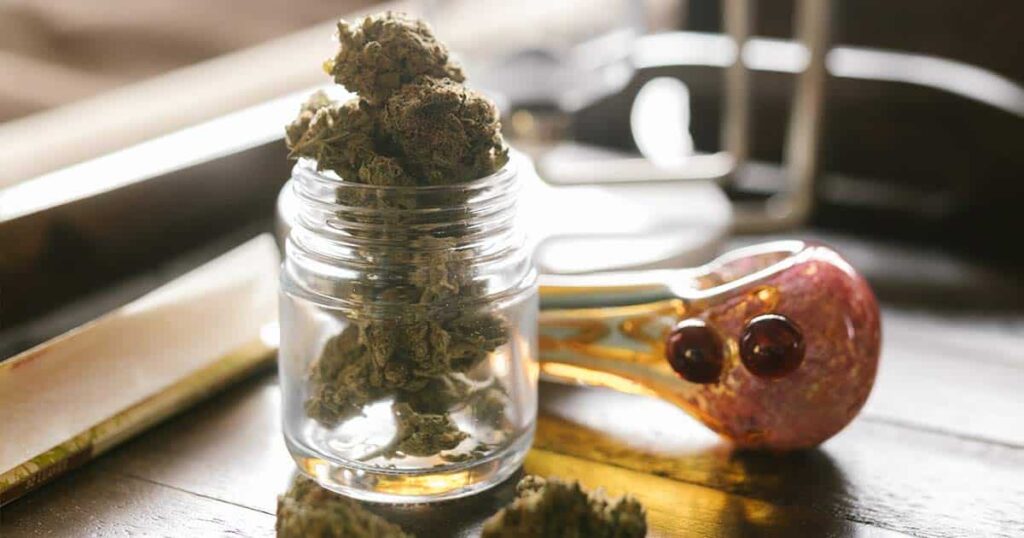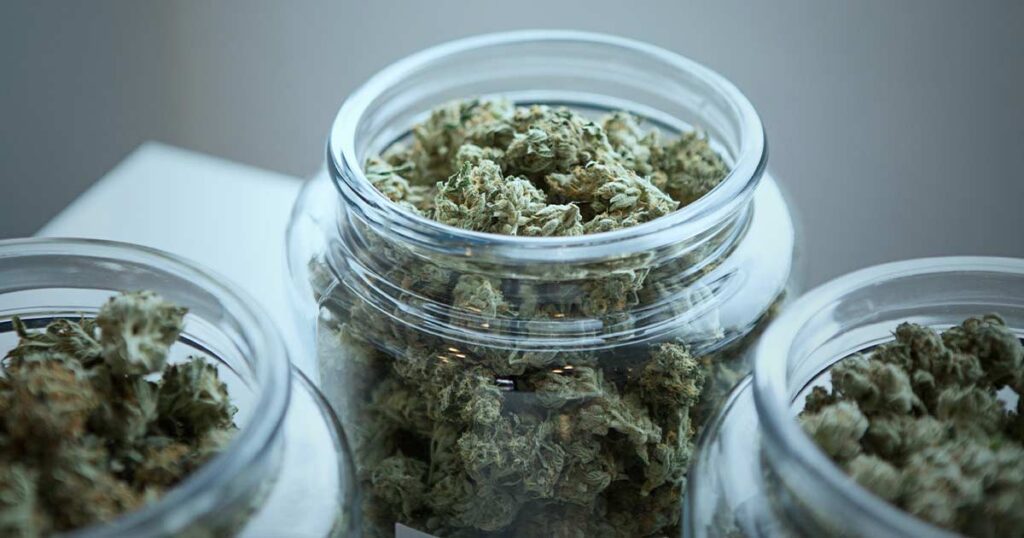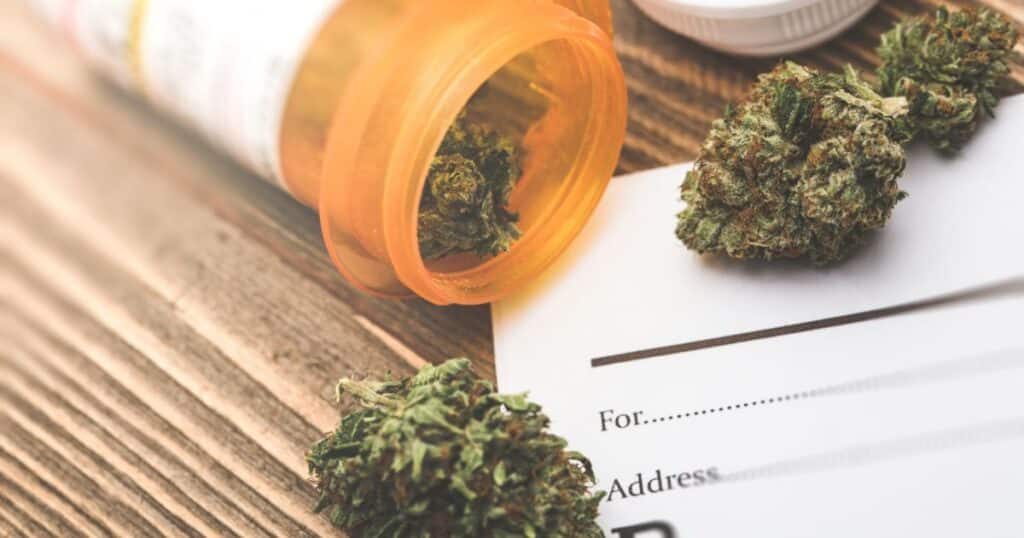Treating Anxiety and Depression With Medical Marijuana
Do you have to drag yourself out of bed to go about your day or find it hard to hit the sack at night because a feeling of emptiness is hovering over you all the time? If the answer is yes, you may be suffering from anxiety or depression. Depression is a mental health condition affecting nearly one in ten Americans, according to a new study published in the American Journal of Preventive Medicine.
Although it is a complex issue that often requires professional intervention, there are a few measures, including medical marijuana, that have been proven effective in alleviating depression. In this article, we’ll discuss the relationship between medical marijuana and mood disorders and ways to mitigate the symptoms of anxiety and depression.
Medical Marijuana and Depression
Medical marijuana is becoming more popular for the treatment of mood disorders such as anxiety and depression, unlike traditional treatments. The traditional way of treating stress and depression includes antidepressants. These antidepressant medications may cause several side effects, which may be bothersome to people who want to lead a normal life.
Why Opt for Medical Marijuana for Treatment?
According to research, the most prevalent reasons why people turn to medical cannabis are stress, anxiety, and depression, and patients are preferring it to deal with their mental condition. The reasons behind the preference for medical cannabis over traditional treatment are aplenty. One of the reasons is that the plant does not cause life-threatening side effects, but rather lessens the symptoms of anxiety and depression if taken in the right dosages.

According to a recent Forbes article, clinically depressed individuals who used medical marijuana had depression scores that were lower than those who did not use cannabis. Additionally, study participants who started taking medical cannabis in the post-study period reported lessening symptoms of anxiety. The article was based on a study published in the journal Frontiers in Psychiatry.
CBD as Alternative Medicine
People suffering from depression have usually been prescribed antidepressant medications, which take a couple of weeks to start working. However, CBD products are quick to show results. These antidepressants are habit-forming and have several side effects, such as mood swings, insomnia, erectile dysfunction, and agitation, whereas cannabinoids don’t show any of these issues. Although CBD has some benefits over antidepressants, don’t take it as a replacement, and talk to your doctor before quitting it.
https://pubmed.ncbi.nlm.nih.gov/29869197/
Cannabis Strains for Depression
- Cinex
- Cannatonic
- GG4
- Jack Herer
- Harlequin
- XJ-13
- Granddaddy Purple
- Blackberry Kush
- Blue Dream
- Gelato
- Sherbert
All of these strains have different amounts of CBD and THC. Some of these strains help in improving focus, uplifting moods and energy levels, helping people to sleep better, producing appetites, and boosting sociability and creativity. However, they do have a negative side.
While trying out these strains, you may experience paranoia, dry eyes, and mouth, headaches, and dizziness. So, it is always advisable to talk to your healthcare expert before experimenting with these strains. The doctors of the Medical Marijuana Card Los Angeles can help you with the right strain to deal with your medical condition.

Living With Depression
Living with depression can be immensely challenging. People with depression often experience persistent feelings of sadness, a loss of interest in activities, and changes in appetite, sleep patterns, and energy levels. These symptoms can affect various aspects of daily life, including relationships, work, and self-care. Simple tasks like getting out of bed, preparing meals, and managing household chores may become overwhelming. Moreover, the study suggests that individuals with depression face three times more difficulties coping at home compared to those without mood disorders. Seeking professional help, building a support system, and practicing self-care can be vital steps in managing depression and improving quality of life.
What Does the Study Say?
Living with depression can be hard and may cost people their relationships, work, and other social issues. The National Health and Nutrition Examination has recently conducted a survey and analyzed 6,980 patients. 80% of patients with anxiety and depression stated that mood disorders interfered with their relationships, work, and maintaining a social life.
The study findings highlight that individuals with depression face significantly greater challenges in coping with daily activities at home compared to those without mood disorders, with a notable three-fold increase in difficulties. This emphasizes the impact of depression on functional abilities and the need for effective interventions to support individuals in managing their home lives.
Making Lifestyle Changes May Help
There are other ways as well to treat depression and anxiety, depending on the severity of the condition. Some people who suffer from mild depression can be treated with talk therapy, and making some lifestyle changes such as exercising, going out in the sun, and eating a balanced diet can also help in mitigating the symptoms of depression and anxiety. So, let’s learn more about them.
Working Out
It has been noticed that symptoms of depression exacerbate when patients stop doing physical activities. An active lifestyle has a profound positive effect, by triggering the release of vital neurotransmitters—chemical messengers that your body can’t do without—that include endorphins, endocannabinoids, and dopamine, which are crucial for mental well-being and motivation. You can choose any form of exercise according to your interest or choice, such as taking a walk, going for a run, playing any sport, swimming, or hitting the gym.
Going Outdoors
Spending time outdoors in the sun is indispensable for the production of serotonin, which acts as a mood stabilizer and assists in healthy sleeping patterns. The other benefit we get from the sun is vitamin D, which is produced by our body when it comes in contact with the sun. Our levels of Vitamin D may directly influence our mental health, a study revealed. The studies found that depressed people had lower levels of vitamin D compared to those who had controlled levels, and those with the lowest vitamin D levels had the greatest risk of depression. https://www.ncbi.nlm.nih.gov/pmc/articles/PMC6970300/

Practicing Mindfulness
You can practice mindfulness, which involves focusing your attention on the present moment without judgment. Mindfulness can be practiced in many ways, including through meditation, deep breathing exercises, or simply paying attention to your surroundings. In recent decades, there has been an upsurge in public interest in mindfulness. Researchers of the American Psychological Association reviewed over 200 studies on mindfulness and concluded that it’s not only an effective tool to reduce stress, anxiety, and depression but also aids in dealing with addiction. https://www.apa.org/topics/mindfulness/meditation
Psychotherapy
Seek help. Speak your heart out with your therapist because bottling up your feelings can make the situation worse. Psychotherapy, or ‘talk therapy’ facilitates finding ways to deal with everyday stressors. Patients not only gain new perspectives on problems but also learn how to talk to others about their condition. Therapists will lend you an ear and create treatment plans according to your needs. Psychotherapy can help patients cope with stress and mitigate the symptoms responsible for depression so that they can function at their best.
Eat and Drink Well
Eating and drinking well can play an important role in handling bouts of depression. Some don’t feel like eating at all, and others may end up overeating, but eating right can affect your mood. Take a balanced diet, which may include vegetables, fruits, and grains, as it will give you energy. Keeping yourself hydrated is equally important to boost your mood, energy levels, and thinking ability.
It’s important to note that lifestyle changes alone may not be sufficient for everyone with depression and should be used in conjunction with other evidence-based treatments, such as therapy or medication, as recommended by a qualified healthcare professional. However, adopting healthy lifestyle changes can be a valuable addition to a comprehensive treatment plan for managing depression and improving overall well-being.
Let’s Wind Up
Depression is a complex mental health condition that affects people in different ways. It is important to not ignore or dismiss the symptoms of depression and to seek appropriate help. Medical marijuana has been shown to have potential benefits in managing certain symptoms of depression in some individuals, but it’s crucial to consult with a qualified healthcare professional before considering this option.
In addition to medical interventions, making lifestyle changes can also be beneficial in managing depression. Regular exercise, healthy eating, getting enough sleep, and practicing stress-reducing techniques such as mindfulness or meditation can all contribute to improving mental well-being.
Seeking support from friends, family, or a qualified medical therapist can also be crucial in managing depression. Talking about your feelings and experiences with trusted people can provide emotional support and validation, and a therapist can offer professional guidance and tools for coping with depression and anxiety. In conclusion, depression affects individuals differently, and it’s important to take it seriously and seek appropriate help. Medical interventions, lifestyle changes, and support from friends and professionals can all play a vital role in managing depression and improving mental well-being.
Enjoyed that first hit? Come chill with us every week at the Friday Sesh for a freshly packed bowl of the week’s best cannabis news!






















